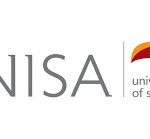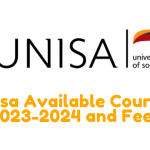Studying abroad offers Ghanaian students a transformative experience that broadens their horizons, enhances their academic…
The Easiest Country to Study Abroad as a Ghanaian Student: A Step-by-Step Guide to Studying in Canada
If you’re a Ghanaian student who has completed your studies in Ghana and is considering studying abroad, Canada offers a welcoming environment and excellent educational opportunities. Known for its multiculturalism, high-quality education, and simplified admission processes, Canada is an ideal destination for Ghanaian international students. In this comprehensive guide, we will provide you with a step-by-step approach to make studying in Canada as easy as possible.
1. Research Canadian Universities and Programs:
Start by researching Canadian universities and the programs they offer. Consider factors such as the university’s reputation, program rankings, available scholarships, and the location’s suitability for your needs. Explore universities known for their support services for international students and a diverse academic community.
2. Determine Eligibility Requirements:
Check the eligibility requirements for admission to Canadian universities. Ensure that you meet the academic criteria, which may include submitting your academic transcripts, standardized test scores (such as the SAT or ACT), and any other specific requirements set by the university or program of your choice.
3. Language Proficiency:
Demonstrate proficiency in English or French, the two official languages of Canada. Most universities require English proficiency scores, which can be fulfilled through tests such as the IELTS or TOEFL. If you are applying to a French-speaking institution, proficiency in French (such as the DELF or DALF exams) may be required.
4. Apply to Canadian Universities:
Submit your application to the chosen Canadian universities. Pay attention to application deadlines and ensure you provide all the required documents, such as academic transcripts, recommendation letters, personal statements, and application fees. Many Canadian universities accept online applications through their official websites.
5. Secure Funding:
Explore scholarship opportunities specifically available for Ghanaian international students in Canada. Research government scholarships, university-specific scholarships, and external funding options. Additionally, consider part-time work opportunities on or off-campus to help finance your education and living expenses while studying in Canada.
6. Obtain a Study Permit and Visa:
Once you receive an acceptance letter from a Canadian university, you’ll need to obtain a study permit and visa. Apply for your study permit through the Immigration, Refugees and Citizenship Canada (IRCC) website or at the nearest Canadian visa application center in Ghana. Provide the required documents, including your acceptance letter, proof of financial support, and a valid passport. Allow sufficient time for processing, as this can take several weeks.
7. Prepare for Arrival:
Make necessary preparations for your arrival in Canada. Research accommodation options, either on-campus or off-campus, and secure your housing in advance. Research healthcare coverage and obtain appropriate insurance to ensure you are protected during your stay. Familiarize yourself with the Canadian culture, weather, and lifestyle to ease your transition.
Conclusion:
Studying abroad in Canada as a Ghanaian student can be a rewarding experience that opens doors to a world-class education and a multicultural environment. By following this step-by-step guide, which includes researching Canadian universities, meeting eligibility requirements, demonstrating language proficiency, applying to universities, securing funding, obtaining a study permit and visa, and preparing for your arrival, you’ll be well on your way to pursuing your academic dreams in Canada. Embrace the opportunities that Canada offers, immerse yourself in its vibrant culture, and take advantage of the academic and personal growth that studying abroad provides.







